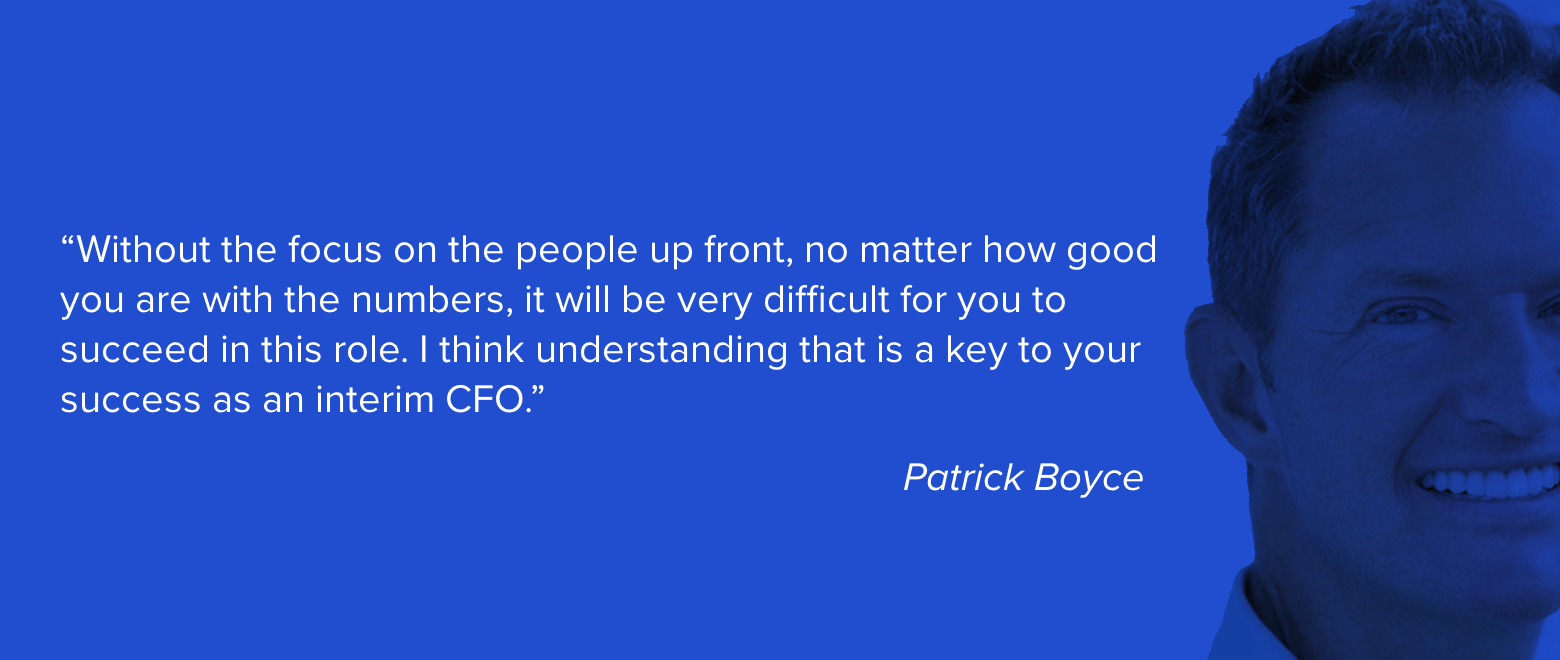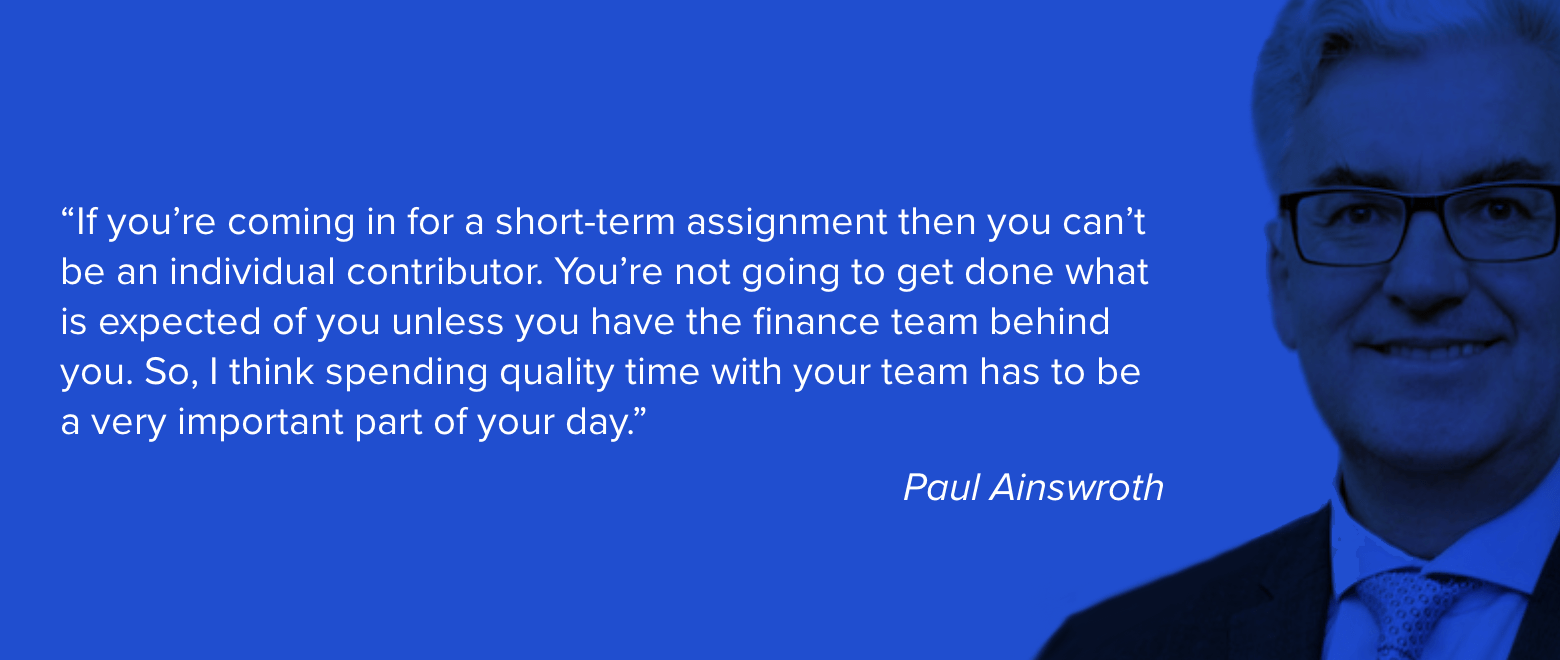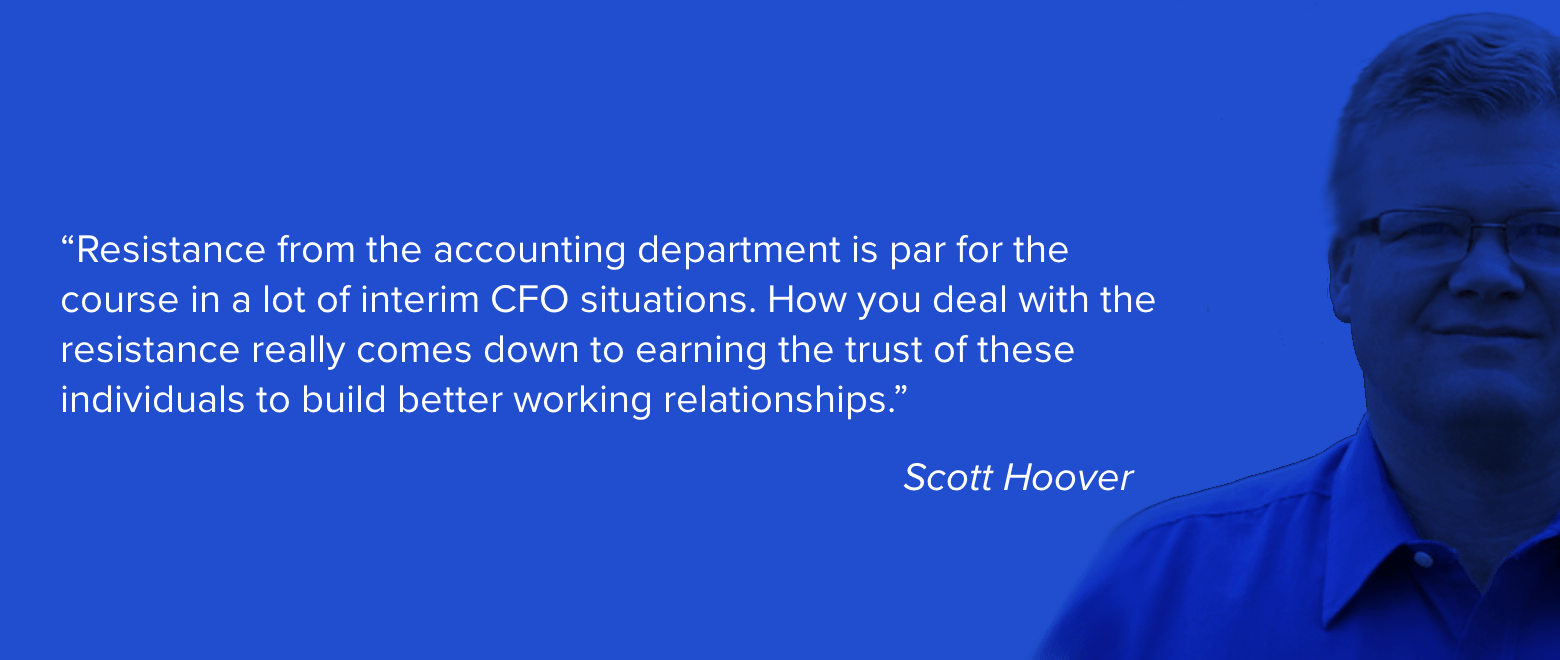A Month in the Life: Interim CFO Roles and Best Practices
An interim CFO has, on average, six to eight months to complete the job set forth by the company, meaning the first 30 days will be critical to accomplishing the goals for the position and setting a good long-term strategy for the company.
An interim CFO has, on average, six to eight months to complete the job set forth by the company, meaning the first 30 days will be critical to accomplishing the goals for the position and setting a good long-term strategy for the company.

Jen Banzaca
Jen Banzaca has been a financial journalist for 16 years, covering topics from financial services trends, investing, hedge funds, regulatory issues and compliance best practices.
Expertise
An interim CFO can help a company fill the gap following the departure of a full-time chief financial officer, help prepare for an event like a merger, or simply assist as the company makes necessary changes to its finance functions.
However, interim roles typically last six to eight months so there is a finite amount of time to complete the job set forth by the company, which means interim CFOs will want to hit the ground running to ensure they set themselves up for success. The first 30 days for the interim CFO are critical for setting a good long-term strategy for the company.
What Does an Interim CFO Do?
Historically, the finance function handled books and records, financial reporting, and statutory compliance, but the CFO of today must be able to take financial data and use it to influence operational decision-making and strategy.
Toptal finance expert Paul Ainsworth noted that some of the skills needed for today’s CFO, whether full-time, part-time, or interim, include leadership and communication skills, a strong understanding of the company’s business model and industry in order to understand and manage risks, and support strategy development, and helping enable its execution.
How to Prepare for the First Day
Conducting your due diligence is vital to preparing for an interim chief financial officer position and understanding the situation you’re getting yourself into.
Toptal finance expert Patrick Boyce said prior to their first day, an interim CFO should know the finance team, know the project, and know the timeframe in which the job must be completed.
Boyce suggested looking at the pricing strategy of competitors.
“Do the standard due diligence as someone who would be dropping into the company. You want to know the situation you’re coming into, what you’ll be expected to do, who your team members are, and the systems they already have in place for you to do the job,” Boyce said.
The most important thing is to get to know the finance team, Boyce added, as an interim CFO cannot complete a job without the team’s support.
“Without the focus on the people up front, no matter how good you are with the numbers, it will be very difficult for you to succeed in this role. I think understanding that is a key to your success as an interim CFO,” Boyce noted.
Ainsworth noted that, unlike a permanent CFO position , there is no “settling in” phase with a temporary, interim role, which is why preparation is so critical. Coming in, the interim CFO must understand the business, the key stakeholders, and whatever other information can be learned prior to the start date.
In many cases, the interim CFO is coming in as a stop-gap between the previous CFO and a new CFO. This could impact the dynamics between the interim person and the finance team, Ainsworth said.
“You don’t find the demand for interim CFOs when everything is rosy in the garden. So you need to understand what you’re walking into and what you will need to accomplish, and you need to get the rest of the finance team and management on your side,” Ainsworth advised.
And, as the first day will likely be pretty hectic, Toptal finance expert Scott Hoover suggested doing as much before the actual first day as possible, from having virtual meetings with finance team members to completing onboarding tasks.
“You want to hit the ground running on your first day. You don’t want to be working with IT to set up your access to everything or having meetings just to introduce yourself to everyone,” Hoover said.

A Typical First Day for an Interim CEO
So what does an interim CFO do on their first day?
The main focus should be on people. For Boyce, he recommends going through the company’s organizational chart to figure out who the key decision-makers in the company are, and the people in the company that will influence what the interim CFO will do and who to collaborate with.
The interim CFO should also take the time to better know the finance team and other key stakeholders in the business.
“What are the personalities of the people on your finance team and your direct reports? What is your relationship going to be like with other key stakeholders at the company? These are important things to understand and you should spend a good amount of time on your first day focusing on the people,” Ainsworth said.
Hoover agreed that people should be a top focus and an interim CFO will want to dedicate time on the first day to establishing a rapport with the senior management team, certainly the CEO and anyone that is key to the operations, sales and the accounting team.
However, Hoover warned that an interim CFO can be seen as a threat, so it’s imperative to spend considerable time trying to earn people’s trust so they will follow your lead.
Additionally, Ainsworth said an interim CFO’s first day should also focus on clarifying what the deliverables are and what the priorities are for the position.
Managing Your Time
While each company’s CFO responsibilities vary by industry and role, a chief financial officer’s daily responsibilities typically include building financial models, analyzing and preparing financial statements, and reconciling income and expenses.
Aside from the typical responsibilities, Ainsworth said he would spend at least 30% to 35% of his time on people-related matters with the team.
“If you’re coming in for a short-term assignment, you can’t be an individual contributor. You’re not going to get done what is expected of you unless you’ve got the team behind you. So, I think spending quality time with your team is a very important part of your day and I would suggest you dedicate significant time to it.”
The rest of your time should be spent focusing on priorities of things that must be completed while you’re with the company. Interim CFOs also need to filter out “noise” from others in the company who may want something done. If it’s not a prioritized task, it should be put off, Ainsworth said.

Assessing the Finance Team
Since an interim position is limited in time, it’s important to get to know the finance team and know what their capabilities are.
The first step is simply to be open and transparent with the team about what their concerns are, what you’re trying to accomplish, and how you can all work together.
Hoover said he starts conversations with asking questions about problems the company and the individuals are facing. An interim CFO should investigate how detail-oriented the team is in order to understand how much support you can expect. Boyce conducts a verbal assessment where he asks basic questions, like what the revenues were like last year and how much equity has been put into the business.
“More often than not I get a blank face and that lets me know I need to do more work to bring them up to speed on what metrics are going to drive value going forward. I want to develop among the team a basic understanding of the leverage we can pull to move the company in the direction that we want to move in.”
Communication
Communication is key for helping an interim CFO fit in with a company and establishing good working relationships.
According to Boyce, your success is going to be determined by how well you communicate throughout the organization and how much influence you’re able to wield. He said that the only way you can wield any influence is if you can communicate in the style and manner in which the people you are trying to influence prefer.
Ainsworth said the most important thing is to follow up to make sure people understand what you’re asking for.
When working as an interim CFO, the best thing you can do is explain that you are there to help the business understand its finances, what’s going wrong, what the trends are and suggest improvements, Ainsworth added.
Hoover said he communicates with everyone up and down the chain and is not afraid to ask for help.
“The more you can have open doors and talk to people and win their trust, the better. And, if
especially if you’re not there all the time, ask for help ahead of time, either by email or phone or before you leave. Set the table for them to help you. Most people respond well to that,” Hoover suggested.
Making Changes
Boyce said in his interim engagements he asks companies about his ability to make changes, as it is something he wants to be able to do.
“I think this is key because you’re generally brought in because there is a problem. so iIt’s important to be able to do surgery and make the needed changes.”
An interim CFO may not have the authority to make changes, however. In such cases, it’s still a good idea to raise any issues that might require changes to the attention to the CEO as soon as possible.
Dealing with Resistance
Depending on the circumstances that led to an interim CFO joining the organization, there may be some resentment and resistance from others in the company.
Ainsworth said the best approach is simply to talk to the individual to understand their concerns and try to develop a strong working relationship that benefits both of you.
Hoover said an interim CFO should anticipate some level of opposition.
“Resistance from the accounting department is par for the course in a lot of situations. How you deal with that resistance really comes down to earning the trust of these individuals to build better working relationships.

Working Remotely
Working remotely can be very different from working in an office and interacting with people face-to-face. So for remote interim CFOs who have no in-person relationships and are only with the company for a limited period of time, communication is critical.
According to Ainsworth, working remotely requires clearer, more proactive communication.
“Things can get lost in translation through email or phone calls. And, when you’re face-to-face in the office, it’s easier for you to understand team dynamics that exist so you can deal with them. So, I think it comes back to you having to be much clearer in your messaging and it often requires follow-up.”
Hoover agreed working remotely is strikingly different from an office setting when it comes to relationships and trust.
“You have to be able to project a personable spirit and a confident nature across a video. You have to be able to win trust through impersonal means, such as video or email, where you may not come across as trustworthy. It really comes down to finding reasons to communicate more, following up, and maintaining relationships and keeping the peace.”
Planning for the Transition
As the job comes to an end, an interim CFO will need to think about how to best prepare the company for his or her departure.
Hoover said in preparing for the transition documentation is key.
“It’s important to document anything you are doing, particularly your financial processes. Organize the finance function so that the next CFO coming in can pick up the processes right away and continue the program you established, if it’s working,” Hoover suggested.
Finally, Ainsowrth said to leave an assessment of the finance team and other key stakeholders outlining their strengths and weaknesses, and to note any risk areas in the financials and what areas might now be as robust as they should be.
Time Is of the Essence
For an interim CFO, time is of the essence. Prioritization, communication, and effective relationship management are essential to success in such a short timeframe. It’s these skills, more than anything else, that will allow the interim CFO to clear the obstacles from their path and focus on what really matters: ensuring the company is in good financial health and ready for the future.
Understanding the basics
What is an interim CFO?
An interim CFO most commonly fills a gap between the departure of one in-house CFO and the start of the new executive. However, interim CFOs can also be brought in to help with specific projects or initiatives.
What is the difference between acting and interim?
An interim CFO is generally someone acting in the role only for a specified period or in between the departure of one executive and the start of a new one. An acting CFO generally is substituting for someone during his or her absence.
How long can an interim position last?
An interim position can last from three months to two years, with most engagements lasting six to eight months.
What does an interim CFO do?
An interim CFO is responsible for monthly financial reporting, cash flow projections, and ensures regulatory filings are completed accurately and on time.
